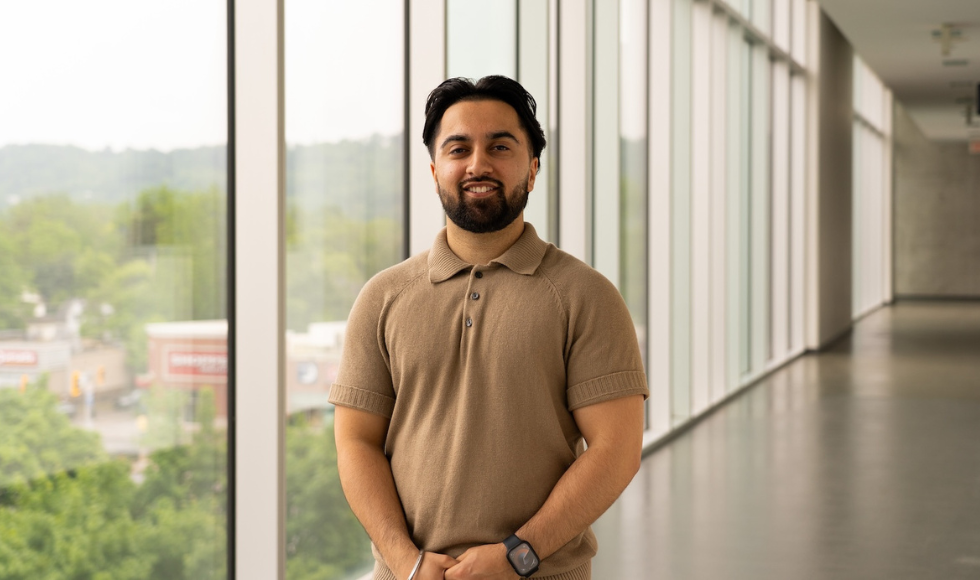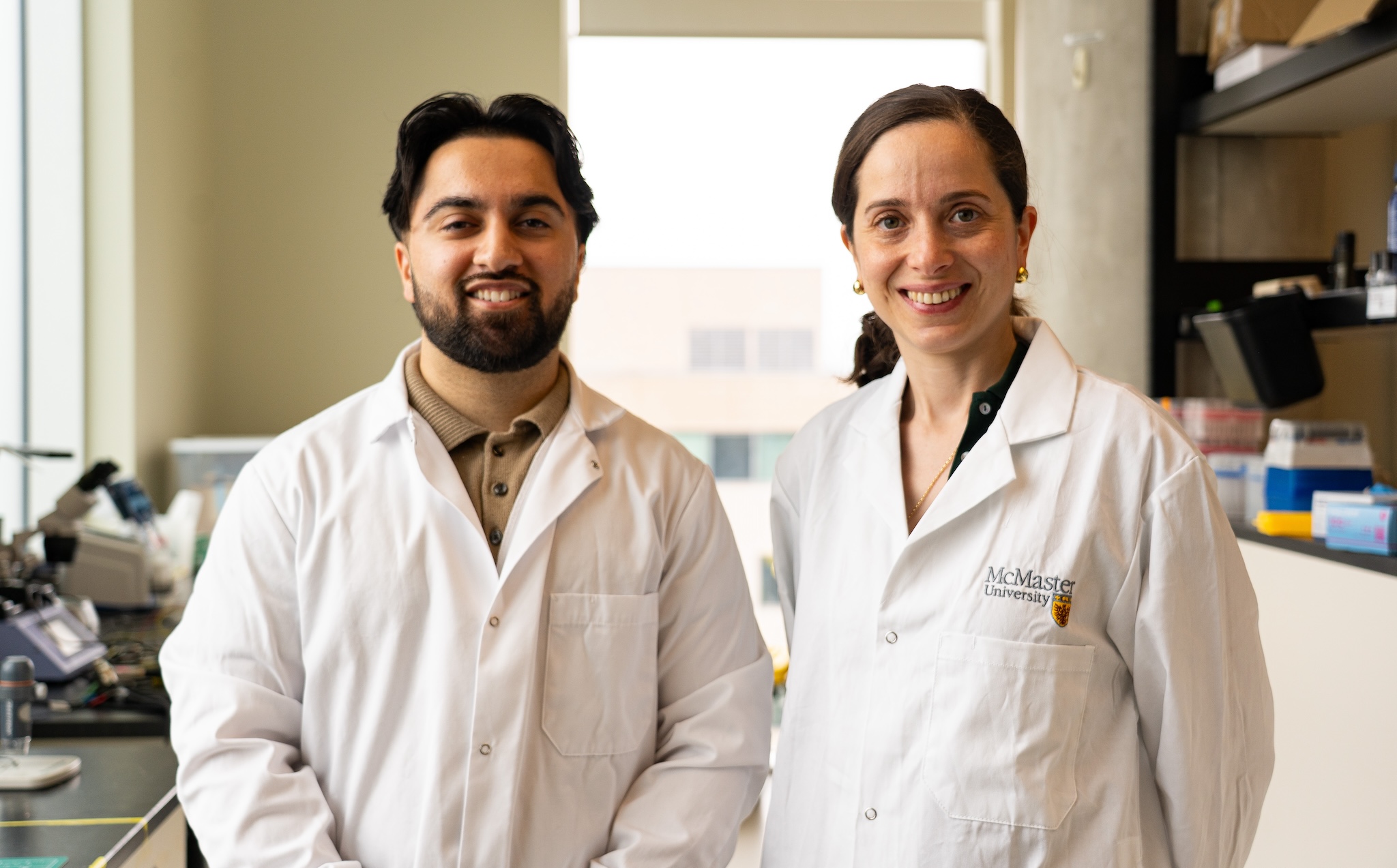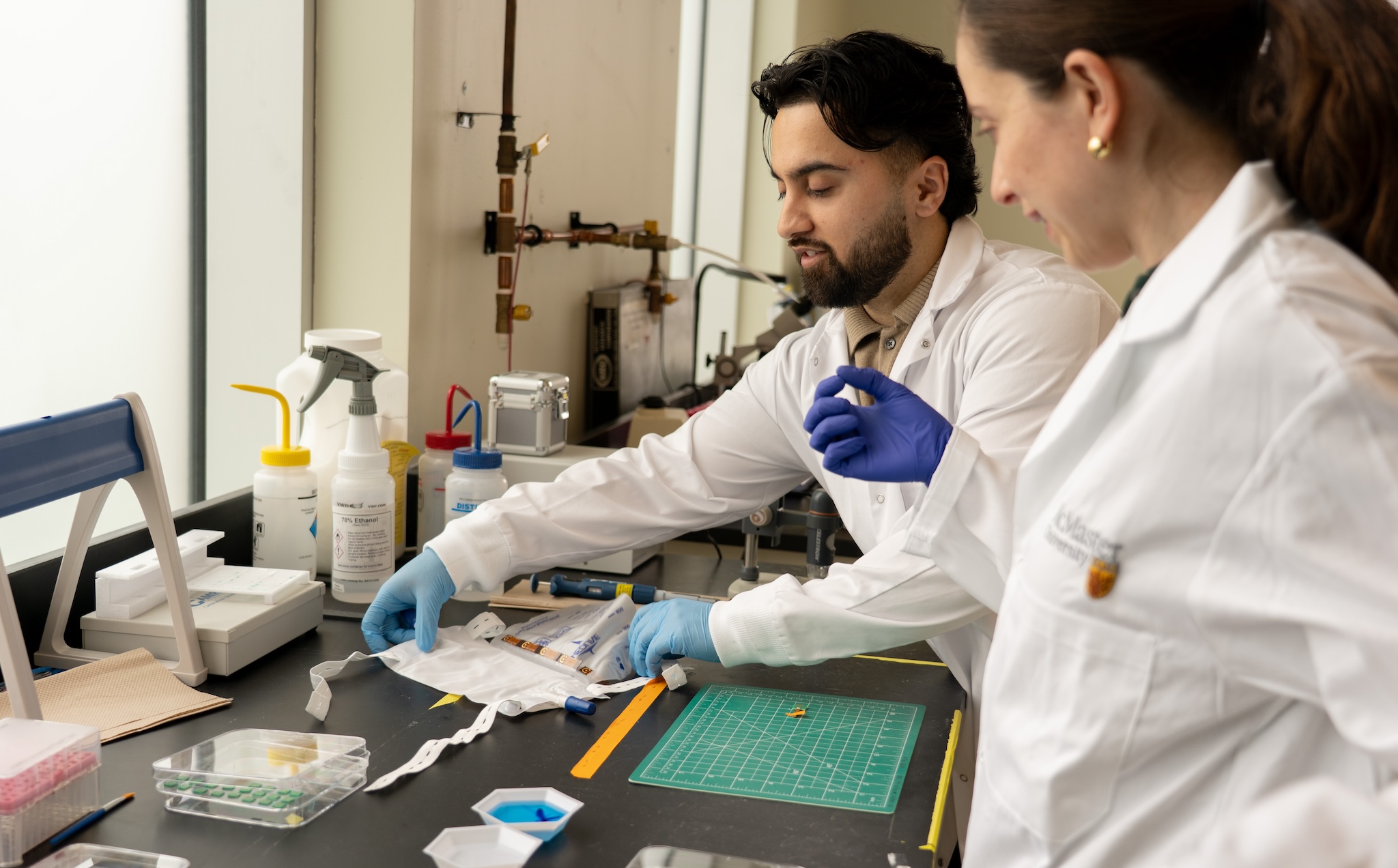Wonder Guard: PhD student’s new device aims to halt progression of UTIs

Biomedical engineering PhD student Manak Bajaj was named the 2025 winner of a $10,000 grand prize for his pitch focused on an innovative way of detecting and predicting Urinary Tract Infections (UTIs).
BY Naz Kittani
June 26, 2025
If you were to ask Manak Bajaj what inspired him to pursue a degree in biomedical engineering, one name comes to mind: Iron Man.
In fact, it was what inspired him to complete his undergraduate degree in the Health, Engineering, Science and Entrepreneurship (iBioMed) program. Now a biomedical engineering PhD student, he may not have a suit of iron, but Bajaj is the real deal – a businessman meets engineer.
Bajaj recently was named the 2025 winner of a $10,000 grand prize for his pitch focused on an innovative way of detecting and predicting Urinary Tract Infections (UTIs).
Detection for prevention
Throughout his research, Bajaj found that approximately 40% of all hospital-acquired infections are urinary tract infections (UTIs), and of these, about 70% are associated with the use of urinary catheters. As a result, he created Wonder Guard, a smart catheter bag powered by artificial intelligence (AI) to better protect patients from the risk of having a UTI.
Integrated with electrochemical biosensors, the smart catheter bag rapidly detects the presence of UTI-causing bacteria. As part of the product’s research and development, Bajaj consulted with nurses and physicians to validate the need for a product like this in the market. He also spent considerable time at McMaster’s health innovation hub, where he received coaching and mentorship to continue to develop his idea into a reality.
Putting his communication skills to the test, Bajaj entered the Arena Pitch Competition. He went head-to-head against 63 other competitors, chosen from more than 300 applicants from 37 higher-education institutions across Canada. Engaging in multiple rounds of presentations debuting Wonder Guard, Bajaj placed first in the competition.
“The competition helped develop my communications skills as you had to summarize three years of work into a minute,” says Bajaj. “Understanding what the most important things are to say in a minute, depending on your audience, it challenged me to sharpen my storytelling ability.”
Meaningful mentorship
While Bajaj credits his time as an iBioMed student for teaching him how to identify problems and solutions, he says going on to graduate studies raised it a to a new level, turning identifying a solution into laboratory-validated engineering.
Bajaj says his aspirations to bring his innovation to market are fueled by watching his PhD supervisor, Leyla Soleymani, lead by example. Soleymani is a global leader in health innovation, known for her work developing pathogen-repelling wrap and creating the first COVID-19 rapid test for wastewater.
“It’s not just what Leyla has accomplished as a powerhouse in research, but also the person that she is that has made my PhD experience so invaluable to me,” says Bajaj. “She took a personal role in guiding my research forward.”
With no plans of slowing down on the horizon, Bajaj is currently preparing for another upcoming pitch competition and eyes set on completing the Startup Survivor Program at the Forge, McMaster’s business incubator.
“As a McMaster student, I want to take advantage of all the unique resources and opportunities I have here and use them as a launchpad for my entrepreneurial career.”




